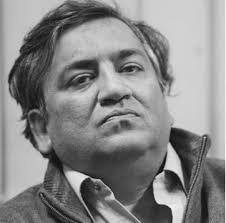

Go to Admin » Appearance » Widgets » and move Gabfire Widget: Social into that MastheadOverlay zone

There were doctors’ boards and teams and panels and huddles that invoked the most alien theories to crack the case. The media ran nonstop commentaries replete with innuendo that added yet more confusion to the discussion as those around former prime minister Nawaz Sharif were accused of faking his illness. Until someone rose to clear the air of a fundamental error.
On these very pages a few days ago, a Peshawar-based doctor reminded the discussants about the need to stick to long-laid-down principles. The writer of this simple logic recalled for the benefit of the excited crowd that no doctor is supposed to discuss his patient’s case with anyone. Simple.
It was the same trust between a patient and a doctor that had earlier forced a remark out of Mian Nawaz Sharif himself. As he prepared to leave the Services Hospital in Lahore after a fortnight, there was a call made from his side about how crucial it was for him that his privacy was maintained. Clearly, the former prime minister was not in the least pleased by all the attention he has drawn while he was incapacitated by issues of health.
His party might now say that the disclosures about his medical condition were absolutely vital to getting him out of a tough spot. That would, however, be a belated attempt at concealing an approach that showed absolutely no intention of keeping the facts about the illness of Mian Nawaz Sharif under wraps. The affair was surrounded by mystery but not for want of effort by his attendants who were all too keen to lay bare his personal affairs bare public viewing — to the consternation of his followers and grimacing old-style, dull doctors pleading for sense to prevail.
Yes, people want to know the facts about a renowned figure. A daily health bulletin highlighting the general indicators about the very important patient raising so much curiosity could have saved us all from this quack’s label in this instance. What has happened is that all this debate about the health of Mian Sahib and all the news about Mr Asif Zardari’s medical treatment have added to the general sense of suspicion regarding politicians — which determines all our endeavours to try and have a dialogue on issues. This is one principle the Pakistanis have been for long conditioned to apply to all matters, over and above other logics.
Thus when a senior lawyer who has had his share of glorious moments and mandatory gaffes speaks about the elected prime minister’s right to have an army chief of his choice, he is quickly pulled up for the sin of siding with ‘the other side’. The partisanship that has seeped into all our discussions like poison prompts some of us to readily predict how the gentleman, a lawyer with a 50-year standing, was poised to jump over and join the ranks of the ruling party. As he is condemned post-haste as a traitor to the cause, the grey area where the battle for supremacy of the civilian elected politicians is being fought for so long is blurred by the emotions that take over our vision.
The situation is further complicated when a little scratching of the surface reveals the double standards of the senior lawyer in question. In another season, at another moment in time, the same brilliant legal mind had registered his party’s opposition to an extension for the then army chief — only without clarifying whether his reasons for this opposition was legal or political. Now since we all know that the interplay of the legal and political can lead to muddles that are impossible to pass, it is odd how the reputable, most sensible souls amongst us crisscross the divisions.
Or perhaps it is impossible to separate the two sides of an individual. For instance, an Aitzaz Ahsan taking up a legal case for Mian Nawaz Sharif might do it purely in his capacity as a lawyer but can he guarantee that the politician inside him can forever honour the commitment his other half has given to his client? There would always be this danger of lay, innocent minds connecting any of Mr Ahsan’s political remarks about Mian Sahib with his past identity — that of a counsel who had once fought for Mian Sahib’s legal rights.
Just as the legal might have been inseparable from the political in Mian Sahib’s case, it seems impossible that a lawyer can remove himself from his politics. The task could be even more difficult for someone who has been a prominent name in many battles for power. Can we say that the lawyers siding with justice Iftikhar Chaudhry were doing so purely on the basis of being members of the legal fraternity, or were they actually political activists pushing for political ideals? The question has never been answered.
Indeed, the leaders of the Iftikhar Chaudhry movement were asked to set the principles — whether theirs was a trade union campaign or whether they were fighting for greater, more comprehensive change, a political change, in the country. The basics were never set in the tradition of keeping it loose for the convenience of everyone. The principles about which individual or institution needs to strictly adhere to which set of fundamental values and codes makes it unduly difficult for those who are there to apply and protect these rules. A prime minister may have the powers to give an extension to an army chief. A prime minister might or might not want to exercise these powers. A lack of principles helps his choice.
You must be logged in to post a comment Login